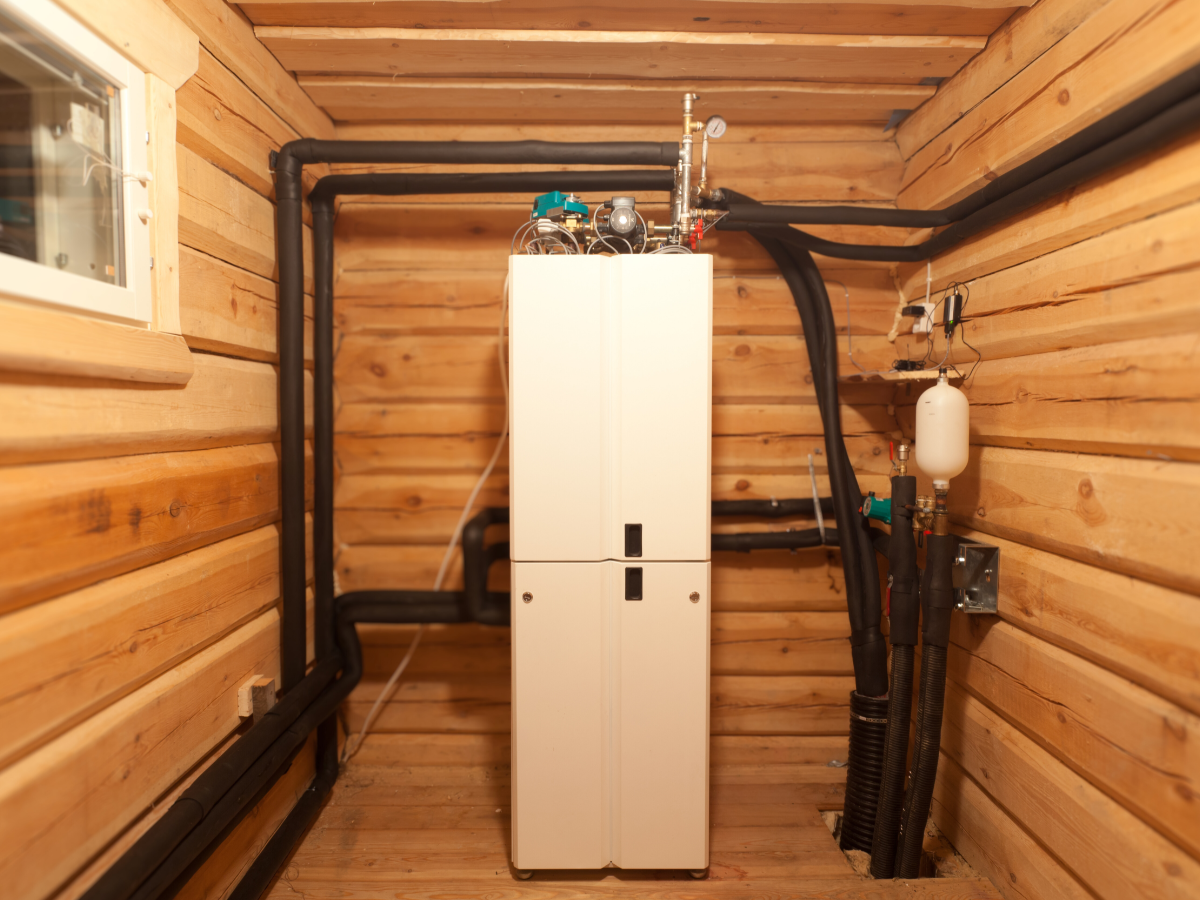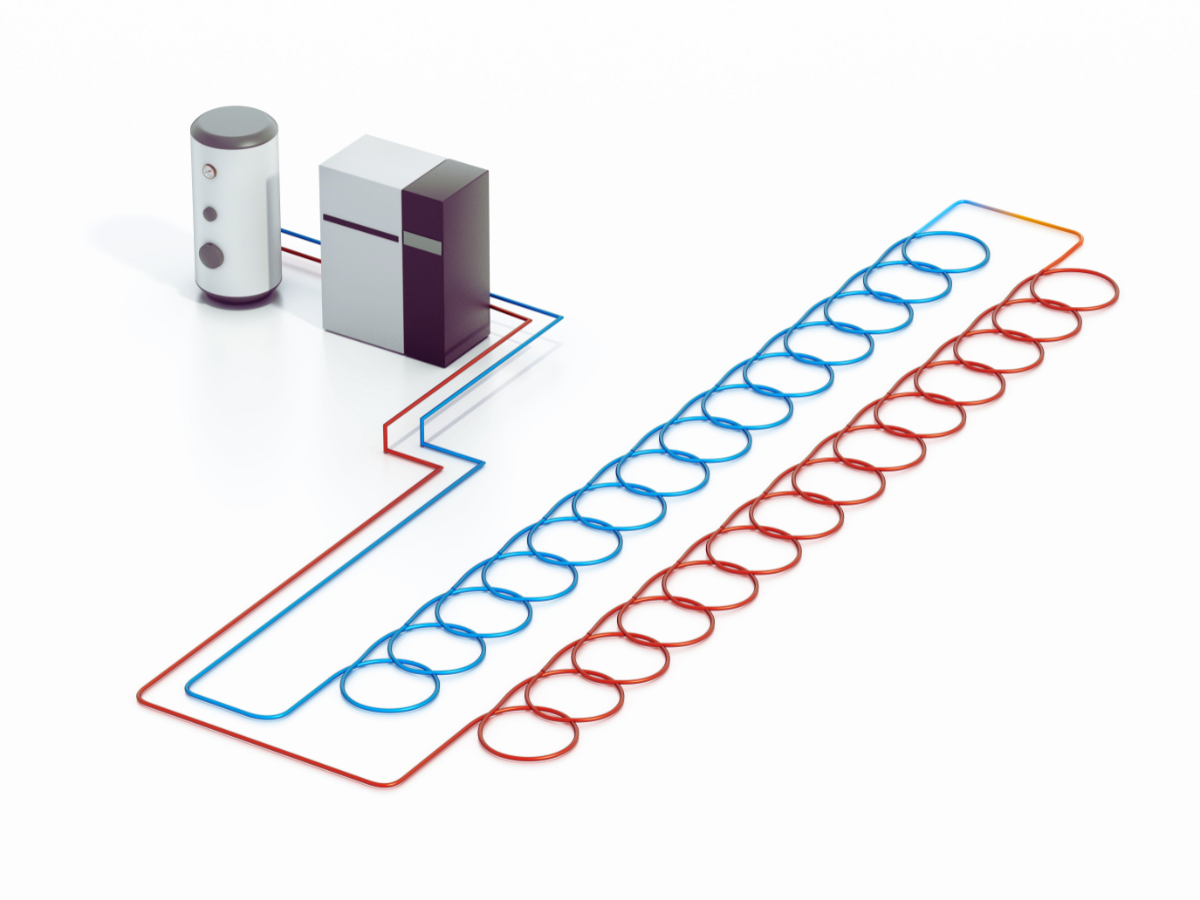 Nobody wants to drop a big chunk of change on a heating and cooling system that crumbles in no time. When you invest in something like a geothermal heat pump, you’re thinking long-term. So, let’s get straight to the point: How long do geothermal heat pumps actually last?
Nobody wants to drop a big chunk of change on a heating and cooling system that crumbles in no time. When you invest in something like a geothermal heat pump, you’re thinking long-term. So, let’s get straight to the point: How long do geothermal heat pumps actually last?
The short answer? About 25-30 years for the heat pump itself and 50 plus years for the underground infrastructure.
But don’t worry, we’ll break this down further. We will explore what makes a geothermal system work. We will also discuss how to maintain it. Finally, we will look at how to get the most out of it each year.
Key Takeaways
- Geothermal heat pumps last between 25-30 years on average.
- The underground ground loop can last 50 years or more.
- Regular maintenance can extend the life of your geothermal system.
- Geothermal systems are more durable and efficient than traditional HVAC systems.
- Installing geothermal heat pump systems properly plays an important role in the system’s longevity.
Basics of Geothermal Heat Pumps
A geothermal heat pump or ground source heat pump, is a bit of a mystery for some folks. At its core, it’s a heating and cooling system that pulls heat from the ground instead of the air, making it super energy-efficient.
Instead of a noisy outdoor unit like traditional HVAC systems, geothermal systems rely on pipes buried underground, known as ground loops. These pipes circulate fluid that absorbs or releases heat, depending on the season.
To understand why geothermal heat pumps last so long, let’s break down the components that make up these systems.
Ground Loops
The ground loops are an important component of geothermal systems. These pipes, buried deep underground, are responsible for heat transfer between the earth and the heat pump. When it’s cold out, they absorb heat from the ground and bring it into your home. In the summer, they release heat from your home back into the earth.
Since the ground loops are buried and out of harm’s way, they can last up to 50 years or more. They aren’t exposed to the elements or everyday wear and tear, which helps them last far longer than other parts of the system.
Geothermal Heat Pump
The geothermal heat pump is the indoor component that does the heavy lifting. It transfers heat to and from the ground loop to heat or cool your home, depending on the time of year.
While it’s not buried underground like the loops, it’s still designed to go the distance—lasting up to 25 years with proper maintenance.
Distribution Systems
Now, you’ve got to get that warm or cool air circulating in your home somehow, and that’s where the distribution system comes in. Typically, this is the ductwork in your home, but it could also be in-floor radiant systems. Either way, this part of the setup usually lasts 20-25 years, or even longer if high-quality materials are used during installation.
How Long Do Geothermal Heat Pumps Last?
 Yes, the upfront installation cost of a geothermal heat pump can be steep. But the good news?
Yes, the upfront installation cost of a geothermal heat pump can be steep. But the good news?
This investment pays off in durability. Early geothermal systems have been running for over 30 years, and today’s systems are even more efficient and long-lasting thanks to advances in technology.
To really understand how long these systems last, though, we need to look at the life expectancy of the individual components.
Lifespan of Geothermal System Components
Ground Loops
These underground pipes are built to last. They typically last 50 years or more, mainly because they’re protected from damage. The type of piping used, such as HDPE or PEX, plays a major role in their durability, along with how well they’re installed.
Geothermal Heat Pump
The heat pump itself, which handles the heating and cooling inside your home, lasts about 25 years. Like any system, regular maintenance is key here. Annual inspections, changing the air filter, and keeping the refrigerant levels in check will help you get the most out of your heat pump.
Distribution System
Your home’s ductwork or radiant heating system can last 20 to 25 years or more, depending on the quality of installation and materials used. In some cases, well-installed systems can last upwards of 40 to 50 years.
Geothermal Heat Pumps vs. Other HVAC Systems
Compared to traditional HVAC systems like furnaces or air conditioners, geothermal heat pumps have a serious edge. While traditional systems typically last 10 to 20 years, geothermal heat pumps often outlast them by a decade or more.
Geothermal Heat Pumps Are Built to Last
What’s the secret to their long lifespan? A few things set geothermal heat pumps apart:
- Minimal wear and tear: Unlike traditional HVAC systems, geothermal heat pumps don’t burn fossil fuels, and they use far less electricity. This means fewer moving parts, which lowers the risk of something breaking down.
- No outdoor components: Since geothermal systems don’t have an outdoor condenser unit, they’re protected from weather damage. No wind, rain, or snow to worry about here.
- Efficient by design: Geothermal systems are naturally energy-efficient, which helps reduce the strain on the system over time.
Regular Maintenance Helps
Of course, no matter how sturdy the system, regular maintenance is non-negotiable. Keeping the system in good shape is the key to getting every possible year out of your geothermal heat pump.
- Inspections: Have your geothermal system inspected annually by a professional to check for any issues.
- Sealing: Make sure the ground loop is properly sealed to prevent leaks, as this can cause inefficiency or damage to the system.
- Immediate repairs: Fix any leaks, cracks, or faulty components as soon as possible to avoid bigger problems down the road.
Geothermal Heat Pumps Are a Worthwhile Investment
When you factor in their long lifespan, geothermal heat pumps are a solid investment. Let’s take a closer look at why these systems make sense.
Longevity and Efficiency
Geothermal systems outlast traditional HVAC setups by a wide margin. With lifespans of 25 to 50 years plus, you’re looking at a long-term solution that keeps both your home comfortable and your wallet happy.
Sustainability
These systems are also a win for the environment. By using the earth’s natural heat, they reduce your carbon footprint and lead to lower energy bills.
Expert Installation
But here’s the thing—getting a geothermal heat pump is just half the battle. You need expert installation to make sure everything runs smoothly and lasts as long as possible. A professional installation ensures everything is set up for maximum efficiency and longevity.
Trust Service Minds One Hour for Heating Solutions
 Whether you’re considering a geothermal heat pump, air source heat pump, furnace, or boiler, Service Minds One Hour in Orlando, FL. has you covered. Their expert technicians arrive on time, every time. It’s part of their brand promise: We’re always on time, or you don’t pay a dime.
Whether you’re considering a geothermal heat pump, air source heat pump, furnace, or boiler, Service Minds One Hour in Orlando, FL. has you covered. Their expert technicians arrive on time, every time. It’s part of their brand promise: We’re always on time, or you don’t pay a dime.
They know how to get the job done right, ensuring your heating and cooling systems work efficiently for years to come.
FAQs about Geothermal Heat Pump Longevity
Geothermal heat pumps are a long-term investment, but it’s natural to have questions about how to keep them running at their best. Here are answers to some of the most common questions:
What’s the average lifespan of a geothermal heat pump?
The heat pump itself usually lasts 25 to 30 years, while the ground loop can last up to 50 years or more.
Does the ground loop ever need to be replaced?
In most cases, the ground loop can last for 50 years or more. Since it’s buried underground and protected from the elements, it rarely needs replacing.
How often should I service my geothermal heat pump?
It’s a good idea to have your system inspected annually. Routine maintenance, like cleaning air filters and checking refrigerant levels, helps extend the system’s lifespan.
How does a geothermal heat pump compare to traditional HVAC systems in terms of longevity?
Geothermal systems generally last longer—25 to 30 years compared to 10 to 20 years for traditional HVAC systems.
What factors affect the lifespan of a geothermal heat pump?
The quality of installation, regular maintenance, and the type of materials used (especially in the ground loop) all play a role in the system’s longevity.
Final Thoughts
If you’re concerned about the lifespan of a geothermal heat pump, rest easy. With regular maintenance, your geothermal system will likely outlive you—without needing any major replacements. These systems are built to last, and with proper care, you won’t be worrying about replacing it anytime soon.